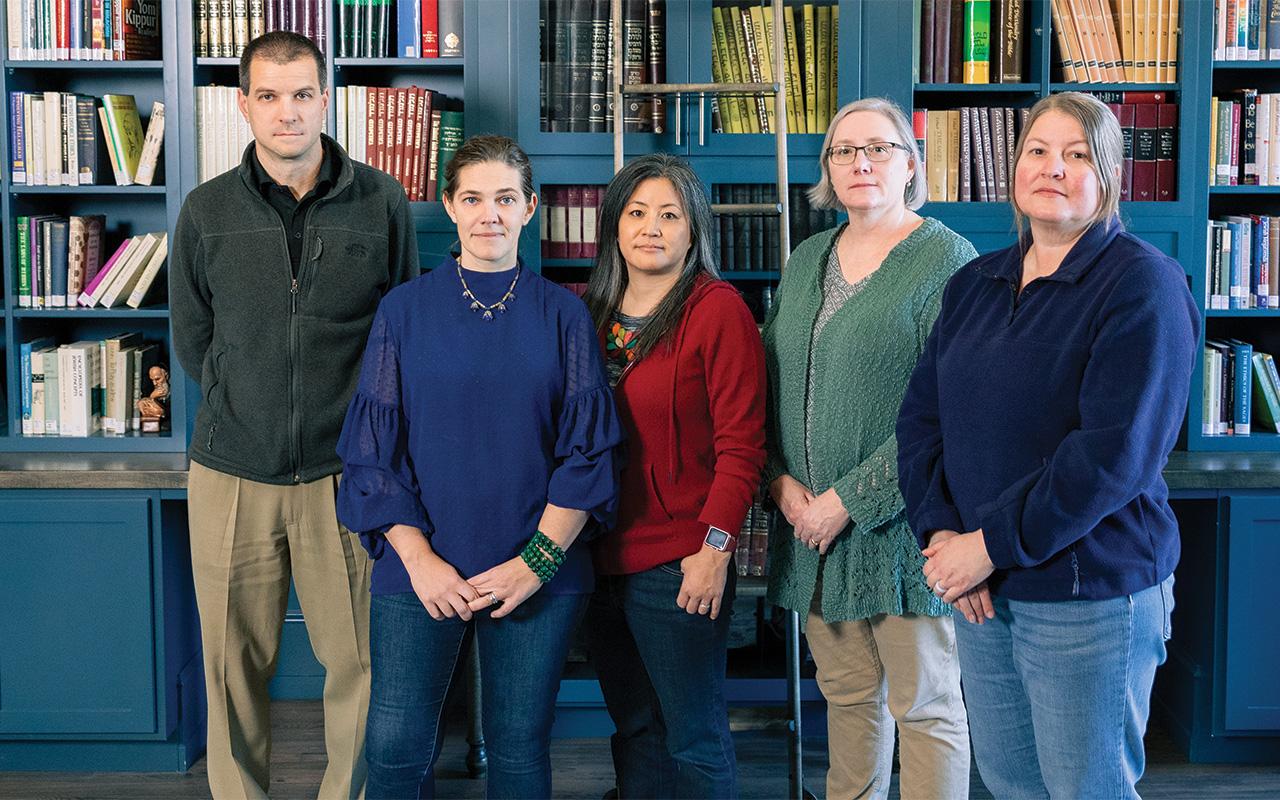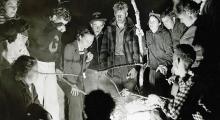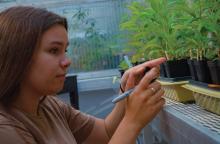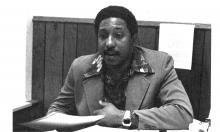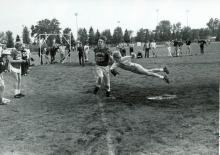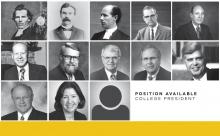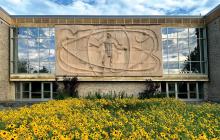Last year, seven professors from multiple disciplines and departments took up the difficult charge of leading Gustavus faculty through curricular changes that will push Gustavus forward during this critical time in U.S. and College history.
“The landscape of higher education has changed,” says Classics professor Yurie Hong, one of the seven faculty members who made up the Faculty Leadership Task Force. “The needs of students have changed, especially after the pandemic.” A demographic dip means fewer potential college students overall. A cultural shift means some students are not choosing college right after high school. For those who do, cost is a major factor, as is a direct connection from cost to careers.
When faced with today’s challenges, the answer from a lot of colleges and universities has been to cut programs, particularly in the humanities. We chose to double down on the liberal arts. Our College needs those programs.”
—professor Kate Knutson
From their first meeting to the all-faculty vote, the process took nine months—a speedy anomaly in higher ed. “This was the unicorn of faculty work,” says Political Science professor Kate Knutson.
Here’s why the changes were necessary, how the Faculty Leadership Task Force did it, and what’s next—in their own words.
What was your mandate?
Kate Knutson: We were asked to do something radically student centric and sustainable for the academic program that stayed true to our standard of excellence and the mission of the College. The cost of college for students was a huge factor. The kind of debt students are graduating with makes it really challenging. We’re not in the same realm as when we all went to college. It’s a whole different ball game.
Betsy Byers: So there wasn’t really a choice.
What were the constraints?
Byers: We had to make changes to scheduling and curriculum in tandem.
Valerie Walker: And we had to recommit to the idea of students having one-third general education classes, one-third major classes, and one-third electives.
Byers: We all know a liberal arts education pays off in your 30s. That’s when you understand the value of elective courses, of different perspectives. And we had to help students name that more directly.
You gathered a lot of current student feedback. What did they ask for?
Dwight Stoll: One of the things that shook out was the need to simplify the general education curriculum to ensure students would get what they needed to graduate on time.
Byers: And to ensure they could participate in music and athletics and peer leadership positions that translate inside and outside the classroom—to connect the dots more clearly.
Stoll: Yes. Connections between experiences and careers. That shows most clearly in the new Signature Experience outcome.
Walker: Even something simple like a scheduling grid helps with this, making sure there aren’t conflicts between academics and co-curriculars.
Yurie Hong: Students’ stress over scheduling conflicts and registration was something we heard loud and clear. The new scheduling grid provides more clarity around their options.
Most changes will be implemented in the 2024–2025 academic year. What’s clearly working right now?
Byers: Advising Day. We canceled class for a day, held open houses in all of our departments and programs, as well as Career Center programming. It was wildly successful.
Walker: I teach a First-Term Seminar and I heard the students say, “I met someone in a department I’m interested in at Advising Day and now I feel more connected.”
Hong: And the Signature Experience has made it easier to demonstrate to prospective students that Gustavus faculty are dedicated to providing them with the skills and experience they need to succeed professionally and in their personal lives.
Amidst changes, what was retained?
Byers: We kept going back to the liberal arts. It was the anchor that helped us move forward in difficult decisions. We understand what’s necessary for now and in the future—interpersonal communications, professionalism, being able to translate different modes of thinking. This new system has really set us up for that—discover your passion, study something that makes you curious, find those connections.
What did you learn in this process?
Hong: How consequential everything is. Everything at Gustavus is interconnected. A tweak in one area has vast impacts in another.
Byers: That was why it was so important to have voices across departments, and process and communication. We listened as much as possible. We addressed concerns with a system of balance. We never dropped surprises. And we had a timeline we
stuck to.
Knutson: People trusted us. And we worked really hard to be worthy of their trust.
What are you excited about going forward?
Knutson: Helping students connect what they do here to what they do after college.
Walker: Helping students see the relevance of the liberal arts, what they take with them across their courses as they go into more complex environments.
Hong: The opportunity to support students from all different backgrounds and to provide more opportunities for departments to collaborate across disciplines. Producing graduates who can think creatively about problems from multiple perspectives, that’s a win for everyone— students, faculty, employers, and our communities and society as a whole.


